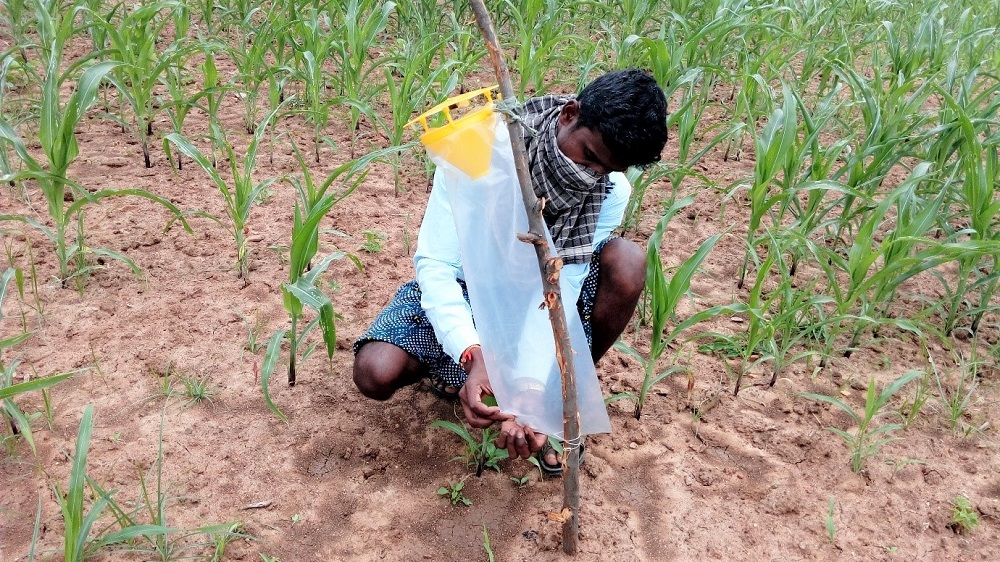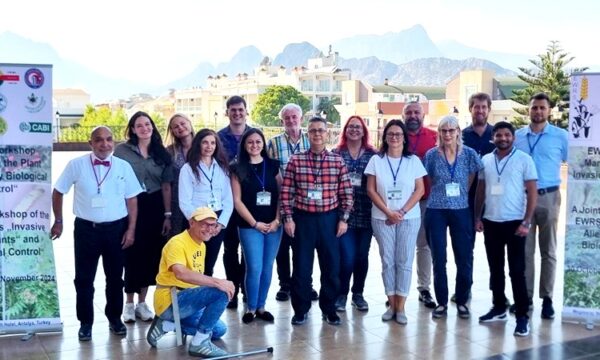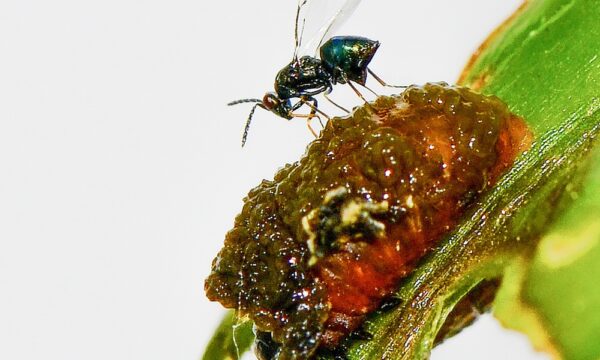
Since 2018, CABI has been actively supporting research on fall armyworm (FAW) management in India and Bangladesh while working closely with their national research institutes – the Indian Council of Agricultural Research (ICAR), the National Bureau of Agriculturally Important Insect Resources (NBAIR) and the Bangladesh Agricultural Research Institute (BARI).
The aim was to bring the global experiences on FAW (Spodoptera frugiperda) to South Asia that CABI has accumulated through its work in Latin America and Africa – especially in the focal area of biological control, writes CABI’s Dr Malvika Chaudhary and Manju Thakur who are based at CABI’s Centre in India.
The main objectives for the collaborations were exchange of knowledge protocols pertaining to native natural enemy survey and testing the most cost-efficient biological control agents (BCAs) for the use of farmers through laboratory and field trials.
Towards the end of second year of collaboration, it was envisaged that there is a need to strengthen the management strategy with exchange of knowledge across the region. Since FAW is a transboundary pest, the solutions could suit across the region due to similarity in agroclimatic conditions.
CABI South Asia, in collaboration with both the partner institutes (ICAR, NBAIR and BARI), organised a two-day virtual webinar which was attended by 16 scientists from the institutes along with participation from CABI experts from Switzerland, Kenya, Zambia, Pakistan and the India centre.
Through their presentations, the scientists focused both on research conducted so far and the communication strategies adopted by the institutions to increase awareness amongst the farmers of their countries.
Dr A.N. Shylesha, Principal Scientist at NBAIR, shared the experiences of NBAIR in that a recent 75-acre field trial plot – where Integrated Pest Management (IPM) was practiced – proved that BCAs can also be adopted as the stand-alone solution to manage the pest when they are applied on time and in the right quantity.
The Biointensive package used in the trials comprised of entomo-fungal pathogens, different species of trichogrammatids and sex pheromone. NBAIR has also developed a package of practices, based on the field results, for the Indian farmer to manage FAW in their fields.
Dr N.K. Dutta, Head of Development, BARI Bangladesh, emphasized the factors that helped Bangladesh combat FAW successfully. This included the formation of National Task Force, capacity building activities, the preparation of educational materials on FAW identification and management and the fast-track registration of effective bio-products.
Under the collaborative project with CABI, the lab and field trials are currently in progress and he stressed the value of strengthening collaboration through regional exchanges of knowledge and inter regional scientist visits.

Dr Marc Kenis, based at CABI’s Swiss Centre, highlighted the importance of knowing the local natural enemy complex in an area before thinking of classical biological control. He also mentioned that the parasitoids considered effective for classical biological control in the Americas are Eiphosoma laphygmae and Chilonus insularis – which can also be considered for India and Bangladesh in consultation with respective authorities.
Dr Dirk Babendreier, also based at CABI’s Swiss Centre, shared his experiences from lab and field trials working in various countries and suggested the need for more research on macrobials for the inundative biocontrol of FAW, which may even be based on combinations of BCAs which can be embedded in IPM strategies.
A need for regional exchange was little obvious when BARI expressed their concern on some unidentified parasitoid collected during the surveys and sought support for standardising the mass production of Telenomus remus (egg parasitoid of S. frugiperda).
The status of Telenomus as a potential BCA for FAW has raised interesting controversy and way forward for further research to strengthen some of the undertaken initiatives.
Some of the recommendations that came from the interactions included conducting smart field trials that can validate and standardise a cost-effective management strategy based on biocontrol for the farmers.
It was highly recommended to conduct a survey of native natural enemies for indigenous species to understand the most potential BCAs for FAW. This would help in the assessment of the need for classical biological control.
For example, this could include the introduction of an exotic natural enemy to have better control of the pest and avoid competition between the species in the same niche.
The deliberations concluded with a clear message that it is also important to see that the infested field with FAW are not abandoned and the use of chemicals to manage FAW is curtailed by deploying cost effective eco-friendly biocontrol strategies.
Additional information
Main image: Preparing a trap for the FAW(Photo Courtesy: NBAIR, Bengaluru INDIA).
Find out more about the FAW from the Fall Armyworm Portal
Learn more about CABI’s work in India and South Asia from the India Centre pages.
Related News & Blogs
Biological control in action: Zambia’s field days on fighting fall armyworm
Experts from CABI recently held two field days and an expo in Zambia, showcasing innovative approaches to pest management to 584 farmers, agro-dealers and other stakeholders to help raise awareness of approaches to tackle the invasive fall armyworm (Sp…
11 June 2025




